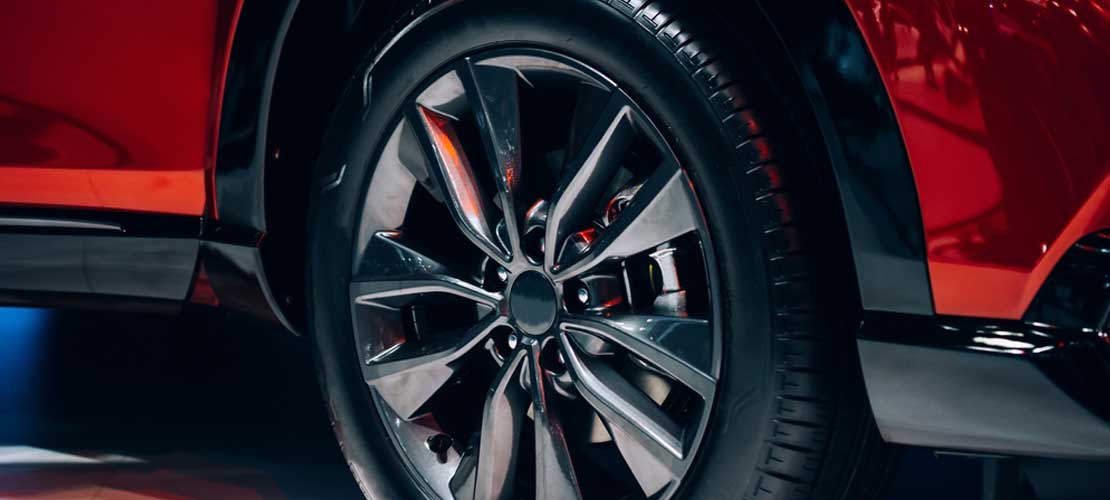- 25 Oct 2024
Why Alloy Wheels Are the Best Choice for Your New Car

What Are Alloy Wheels?
Alloy wheels are made from a mixture of aluminum and other metals like nickel, magnesium, or titanium. They’re lighter than traditional steel wheels and offer a bunch of benefits.
Performance Benefits of Alloy Wheels
Improved handling and stability
Alloy wheels give your car better handling because they’re stiffer than steel wheels. This means less flex when you’re cornering, which leads to better grip. I noticed this difference when I switched to alloy wheels on my old car – it felt like I was driving a whole new vehicle!
Enhanced acceleration and braking
Because alloy wheels are lighter, your car doesn’t have to work as hard to get moving or to stop. This can make a noticeable difference in how your car performs. It’s like the difference between running in heavy boots and lightweight sneakers.
Reduced unsprung weight
Unsprung weight is the weight of everything that moves with the wheel. Less unsprung weight means your suspension can work more effectively. This results in a smoother ride and better handling. When I first experienced this, it felt like my car was floating on air!
Aesthetic Advantages
Wide range of designs and finishes
Alloy wheels come in all sorts of styles and finishes. You can find everything from simple and elegant to bold and flashy. It’s like choosing the perfect pair of shoes to match your outfit – the right wheels can really make your car stand out.
Customisation options
Many manufacturers offer custom finishes or even fully custom designs. You can really make your car unique with the right set of alloy wheels. I once saw a car with rose gold alloy wheels, and it looked amazing!
Increased vehicle resale value
A good set of alloy wheels can actually increase your car’s resale value. They’re seen as a desirable feature, so your car might sell faster and for more money. It’s like investing in a good paint job or interior upgrade.
Durability and Maintenance
Corrosion resistance
Alloy wheels are more resistant to rust and corrosion than steel wheels. This means they’ll look good for longer, even in harsh weather conditions. I’ve had my alloy wheels for years, and they still look great!
Easy cleaning and care
Keeping alloy wheels clean is pretty simple. A regular wash with soap and water, and maybe an occasional polish, is all it takes. It’s much easier than trying to keep steel wheels looking good, especially if they start to rust.
Long-term cost-effectiveness
While alloy wheels might cost more upfront, their durability and low maintenance needs can make them more cost-effective in the long run. It’s like buying a good quality jacket – it costs more, but lasts longer and looks better over time.
Fuel Efficiency and Environmental Impact
Reduced fuel consumption
The lighter weight of alloy wheels means your engine doesn’t have to work as hard to move the car. This can lead to better fuel efficiency. I noticed a small but noticeable improvement in my fuel consumption after switching to alloy wheels.
Lower emissions
Better fuel efficiency also means lower emissions. It’s a small change, but every little bit helps when it comes to reducing our environmental impact. It’s nice to know that your wheel choice can contribute to a cleaner planet.
Recyclability of alloy materials
Alloy wheels are highly recyclable. When they reach the end of their life, they can be melted down and used to make new products. It’s comforting to know that your wheels won’t end up in a landfill.
Safety Features
Enhanced heat dissipation for brakes
Alloy wheels are better at dissipating heat from your brakes. This can help prevent brake fade during heavy use, like when driving down a long hill. It’s a feature you might not think about often, but it could make a big difference in an emergency.
Improved tire pressure monitoring
Many alloy wheels are designed to work well with tire pressure monitoring systems. This can help you keep your tires at the right pressure, which is important for safety and fuel efficiency. I love not having to manually check my tire pressure all the time!
Better traction in various weather conditions
The design of many alloy wheels can help channel water away from the tire, improving traction in wet conditions. This can give you more confidence when driving in the rain. I remember feeling much more secure during a heavy rainstorm after I got my alloy wheels.
Comparing Alloy Wheels to Steel Wheels
Weight differences
Alloy wheels are typically 30-50% lighter than equivalent steel wheels. This difference might not seem like much, but it can have a big impact on your car’s performance and fuel efficiency. It’s like the difference between carrying a heavy backpack and a light one – you might not notice at first, but over time, it makes a big difference.
Performance comparison
In almost every aspect of performance – handling, acceleration, braking – alloy wheels come out on top. The only area where steel wheels might have an advantage is in extreme off-road conditions where their strength is beneficial. For everyday driving, though, alloy wheels are the clear winner.
Cost analysis
While alloy wheels are more expensive initially, their benefits in terms of performance, fuel efficiency, and resale value can offset this cost over time. It’s like buying a more expensive, energy-efficient appliance – it costs more upfront but saves you money in the long run.

 Google Review
Google Review 




 Google Review
Google Review
 Digitally enhanced by
Digitally enhanced by